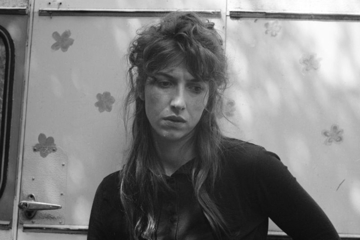Andrew Bovell
There’s some really key scenes centred on communication, and for a while you think there’s the possibility that these two people could coexist, and if they could have, we could have had a very different history.
“Collaboration is really important for me so I knew I had to find common ground with Neil, that we had to find some kind of shared mission,” says playwright Andrew Bovell (When The Rain Stops Falling, Lantana), who, alongside director Neil Armfield undertook to adapt Kate Grenville's novel, The Secret River, for stage.
First published in 2005, the historical fiction novel follows an early 19th century English family, the Thornhills, as they relocate to Australia, making a new home near the Hawkesbury River. A time when contact between European settlers and the Indigenous people of the land was in its formative stages, Bovell found the theatricality of the story in those early interactions and (mis)communications.
“It took us a long time to crack it: what kind of play would this be?” Bovell asks the question that was bounced back and forth between himself and Armfield. “We really wanted to avoid a sense of an historical mini series, or the way television or film might treat this subject; we had to find the theatrical language. We knew that there needed to be a strong Indigenous language in the work, and that's where a key breakthrough was.”
Told from the point of view of the Thornhills, Grenville's novel depicts the Indigenous people of the Hawkebury as alien; a mystery. For Bovell, giving voice to them was the piece of the puzzle he had been missing. “In the book the Indigenous characters don't speak; they're observed from a distance, and we knew that we couldn't have Indigenous people on stage and them not having a voice, so one of the big breakthroughs was to actually name the Aboriginal characters and to begin to give them a voice and begin to give them a perspective on what was happening.”
Don't miss a beat with our FREE daily newsletter
Richard Green, an Elder of the Dharug tribe, who are native to the Hawkesbury region, was brought on as language consultant to assist in the process of giving these characters a voice. “Once we got that angle on it, it started to open up for us,” Bovell explains. “One of the other key breakthroughs was that we decided there would be a narrator, and the narrator is called Deerubbin, which is the Dharug name for the Hawkesbury River, just to have that commanding voice as somebody who is telling us this story, giving this story to us – Deerubbin is partly Kate Grenville's voice, partly my voice and partly the voice of the Dharug people.”
As is to be expected given the novel's thematic concerns, Bovell was intrigued by the historical impact of the arrival of the Europeans – something he had examined previously in an earlier play, Holy Day – but upon giving voice to those that were unheard, the final pieces fell into place and a more familial theme emerged.
“We made a discovery that really this is about two families that had similarities as well as huge differences, and it was two families who occupied the same space. There's some really key scenes centred on communication, and for a while you think there's the possibility that these two people could coexist, and if they could have, we could have had a very different history. And that's the great tragedy of the piece; it's that there was another way on offer, and for a series of reasons William Thornhill wasn't able to embrace it.”
WHAT: The Secret River
WHEN & WHERE: Monday 25 February - Saturday 2 March







